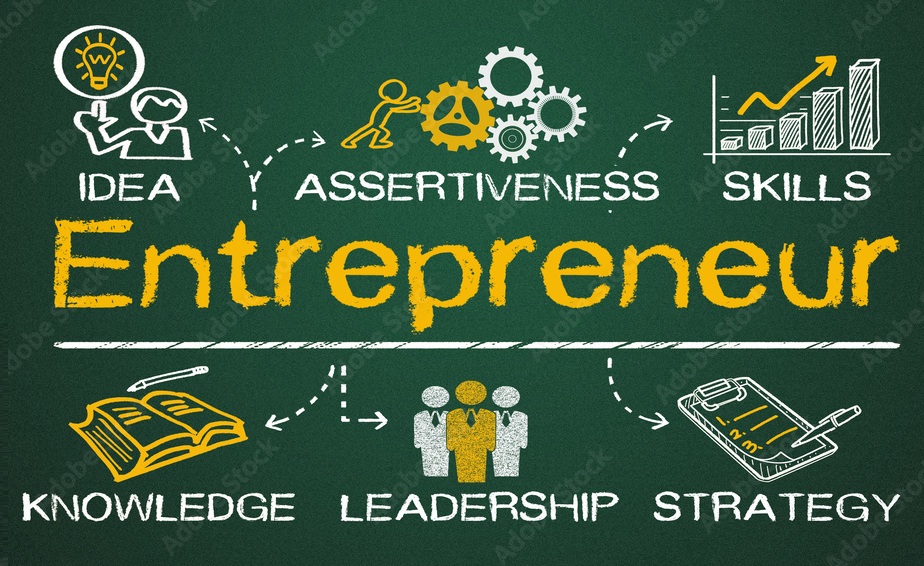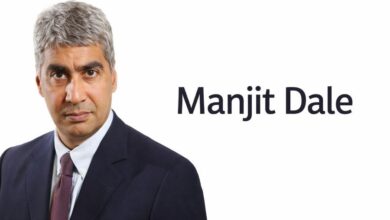The New Rules of Modern Entrepreneurship: Strategy, Personality, and Purpose

The business landscape has evolved far beyond traditional models of success. In today’s competitive, digitally-driven, and culturally-aware world, successful businesses are no longer built on financial capital alone. Instead, they’re powered by strategic vision, personal branding, and purpose-led leadership. Entrepreneurs now must wear multiple hats—visionary, creator, marketer, and sometimes, influencer.
As industries evolve and technology accelerates disruption, a new wave of business leaders is rising—individuals who blend strategic thinking with personal authenticity, cultural relevance, and bold risk-taking. This article explores how modern entrepreneurs can thrive by embracing innovative strategies, storytelling, and impact-driven growth models. We’ll also look at standout figures and firms reshaping what business success looks like in 2025.
The Shift from Traditional Models to Founder-Driven Brands
In the past, businesses relied heavily on anonymity. A product or service could exist independently of its creator. But that dynamic has shifted. Consumers today are far more connected to who is behind the brand. This has led to the rise of founder-driven companies—where the personality, values, and lifestyle of the entrepreneur play a central role in customer perception and loyalty.
Why is this happening? Because trust has become the most valuable currency. In a saturated market where options are endless, customers gravitate toward people they believe in, not just products. A story, a voice, and a vision give a brand depth. That’s why today’s business stars are building empires not just through product innovation but by becoming the face and story behind their ventures.
This is especially true in creative, lifestyle, tech, and food industries—spaces where emotion and identity influence buying decisions. Leaders in these industries understand that the founder’s voice can be just as important as the value proposition.
Strategic Consulting: The Backbone of Scalable Growth
Even with a powerful personal brand, no business can grow sustainably without a clear strategy. That’s where consulting firms and strategic advisors step in. Entrepreneurs who seek expert guidance early on can avoid common pitfalls, seize high-value opportunities, and outmaneuver competitors with precision.
Strategic consultants do more than improve operations—they help define long-term goals, structure growth plans, and align every decision with overarching business values. In a volatile market, agility is key, but agility without direction is chaos. Strategy brings clarity.
One standout in this field is PedroVazPaulo Strategy Consulting, known for blending traditional business insights with modern adaptability. The firm helps clients not just plan for growth, but also navigate cultural shifts, digital disruptions, and emerging global trends. Their approach is a great example of how consulting is no longer reserved for massive corporations—it’s essential for startups, solo founders, and mid-size businesses looking to scale responsibly.
Storytelling as a Business Growth Tool
Every brand has a story—but not every brand tells it well. In an age where attention is short and content is endless, storytelling is your competitive edge. It’s how you communicate your mission, connect emotionally with customers, and create a tribe around your values.
Whether you’re launching a new app, scaling a coaching business, or opening a sustainable fashion label, your story matters. It’s not just what you sell—it’s why you sell it, how you started, and what transformation your customer experiences through your offering.
Founders should take time to shape their narrative clearly and share it consistently—through websites, press interviews, social media, podcasts, and public speaking. A compelling founder story can be more powerful than a million-dollar marketing budget. It gives your audience a reason to believe in you.
This doesn’t mean exaggerating or inventing hardships. Authenticity is the real secret. Be open about your challenges. Talk about failures. Let people into your world. That vulnerability builds deep connection and loyalty.
From Food to Fame: The Rise of Business Stars
One of the most exciting trends is the rise of business stars—entrepreneurs who not only run successful ventures but become public personalities in their own right. These leaders appear on magazine covers, host TV shows, write books, and build followings that rival Hollywood celebrities.
A perfect example of this is Susan Anne Povich, a standout name in the world of modern entrepreneurship. Known for blending culinary excellence with business savvy, Susan transformed a simple food concept into a brand empire. But it’s not just about the food—it’s about her story, charisma, and fearless commitment to making her vision reality. Her presence proves that business success today is about more than numbers. It’s about visibility, relatability, and bold execution.
Susan’s success also illustrates the power of media. Through storytelling and well-crafted brand messaging, she carved a niche where passion, culture, and entrepreneurship collide. For up-and-coming founders, she’s proof that thinking beyond the product—toward personality and media presence—is a major key to long-term brand power.
Building a Brand That Can Withstand Disruption
In 2025, change is the only constant. New technologies appear overnight. AI is changing the way we work. Climate change affects industries from agriculture to fashion. Consumer values evolve quickly—today it’s sustainability, tomorrow it’s mental health, and next year it might be digital detox.
How can businesses prepare for so much uncertainty? The answer is to build brands that can pivot without losing their core. This means establishing strong brand values, a flexible team structure, and a customer-first mindset. It also means keeping an eye on trends without being enslaved by them.
A resilient brand has a clear identity and strong operational foundation, but it’s never rigid. It adapts to new channels, listens to its community, and isn’t afraid to shift direction when needed. For instance, a fitness brand that began with in-person classes might now thrive through digital subscriptions and wellness retreats. A publishing company might explore VR storytelling. A fashion label could move into second-hand resale.
What matters most is maintaining the brand’s integrity while expanding in ways that serve the evolving market.
The Power of Micro-Influence and Niche Communities
Another trend redefining business in 2025 is the growing power of niche communities. While viral reach was once the holy grail, today many successful brands are built on depth over width. A business with 2,000 fiercely loyal fans can be more sustainable than one with 200,000 disengaged followers.
Micro-influencers, community-led platforms, and personal engagement have become key growth tools. This allows brands to grow more organically, test ideas faster, and build long-term trust. Community feedback now drives product development, customer service, and even brand messaging.
Smart entrepreneurs are tapping into this by launching community-first products and services. They’re building private forums, hosting intimate events, creating exclusive content, and using customer co-creation as part of the brand experience.
This also gives rise to recurring revenue models—like memberships, subscriptions, and closed groups—that provide both stability for the business and deeper connection for the customer.
Purpose Over Profits: What Today’s Customers Really Want
Consumers today are value-driven. They don’t just want to buy—they want to support something meaningful. Environmental ethics, social justice, health, transparency, and diversity are no longer optional topics—they’re business imperatives.
Founders who align their business with a higher purpose not only attract customers, but also better employees, partners, and investors. Being profit-driven alone is outdated. Today, it’s about making an impact while making income.
This doesn’t mean every business needs to be a nonprofit or activist brand. It just means knowing what you stand for and weaving that into every layer of the business—your messaging, hiring, sourcing, packaging, and customer experience.
Even small efforts—like switching to ethical suppliers, donating a portion of profits, or supporting local creators—send a powerful message. Customers notice. And they reward brands that reflect their values.
Final Thoughts: The Future Is Personal, Strategic, and Purpose-Led
The new rules of entrepreneurship are more human, creative, and dynamic than ever before. Success today isn’t reserved for those with deep pockets or perfect timing—it belongs to those with vision, flexibility, and courage.
Whether you’re an aspiring founder or an established brand leader, remember that your strategy must balance heart and head. Use data, yes—but don’t ignore storytelling. Embrace systems, but don’t neglect culture. Grow fast, but grow with intention.
As we’ve seen through business stars like Susan Anne Povich and strategic powerhouses like PedroVazPaulo Strategy Consulting, the future belongs to those who blend identity, innovation, and purpose to create businesses that do more than make money—they matter.



